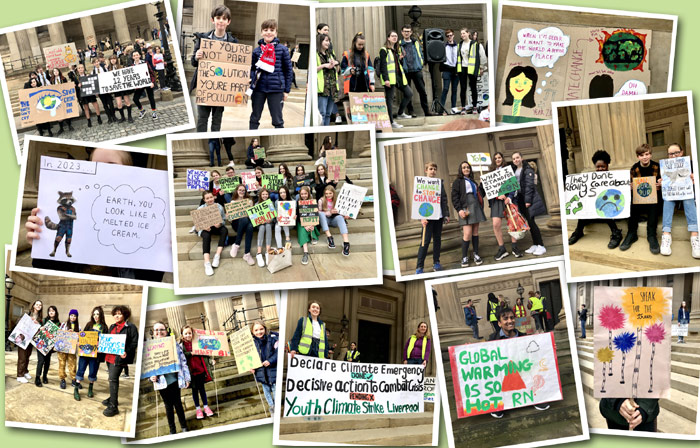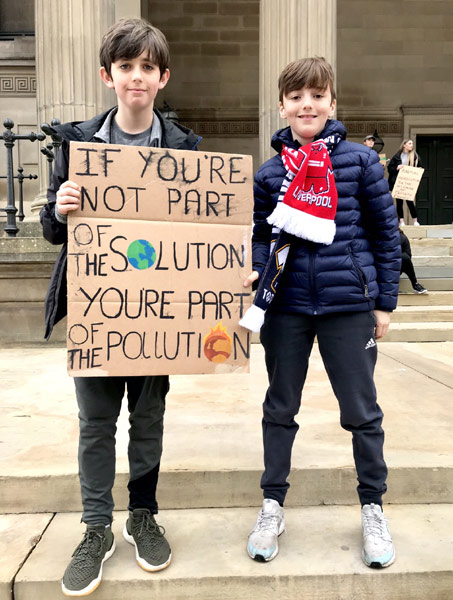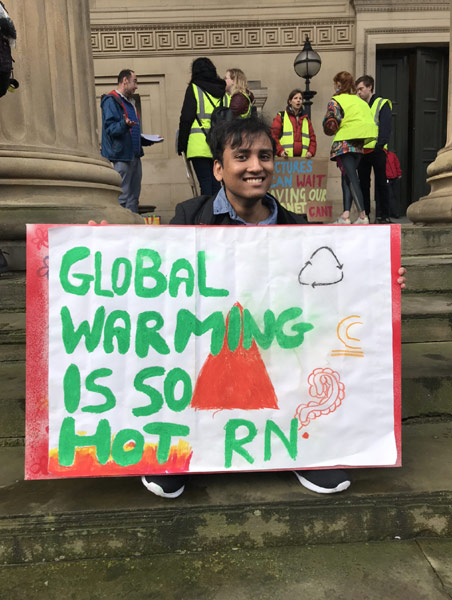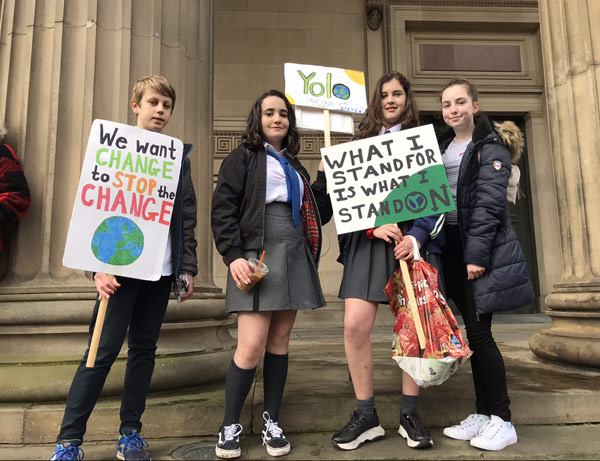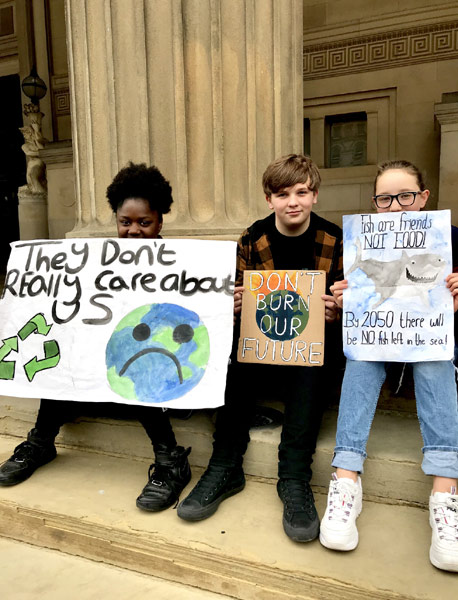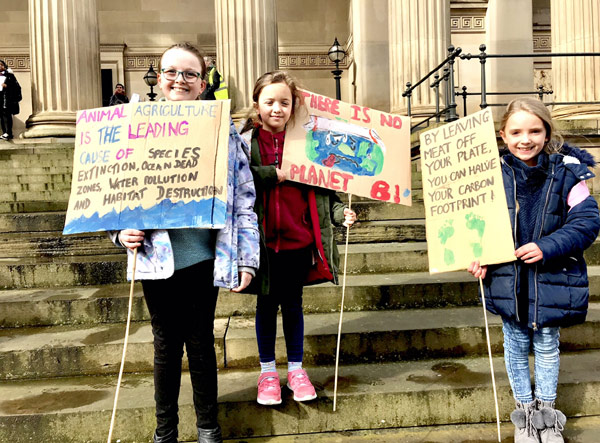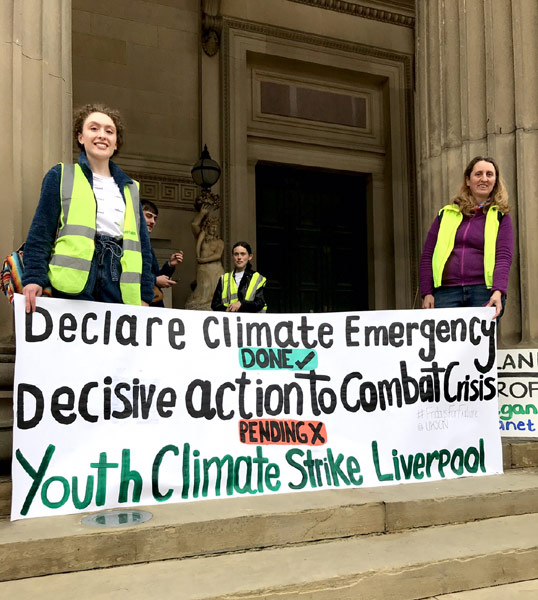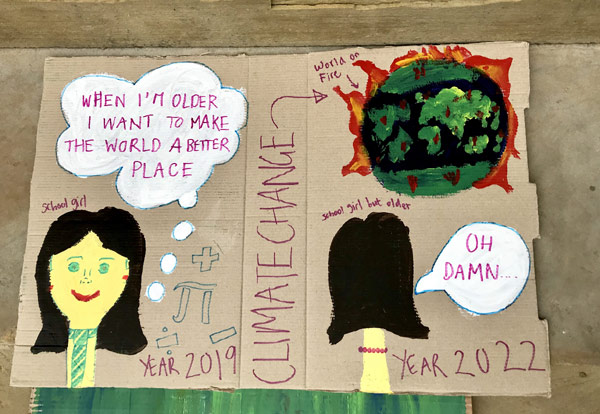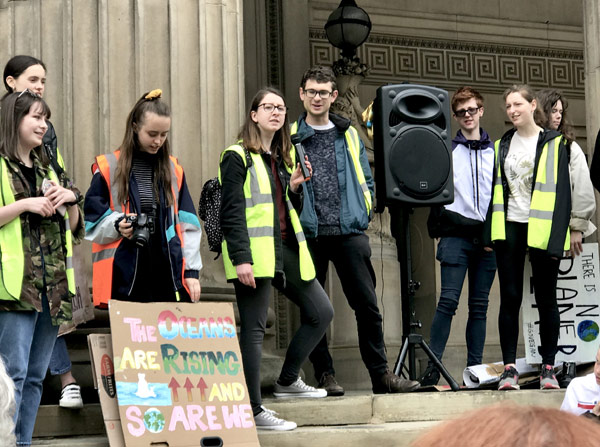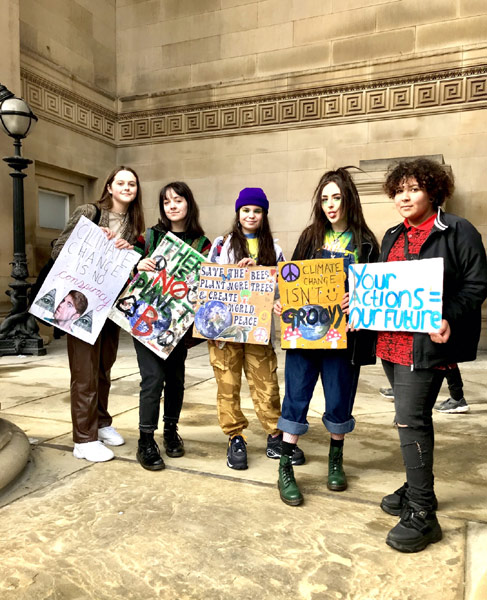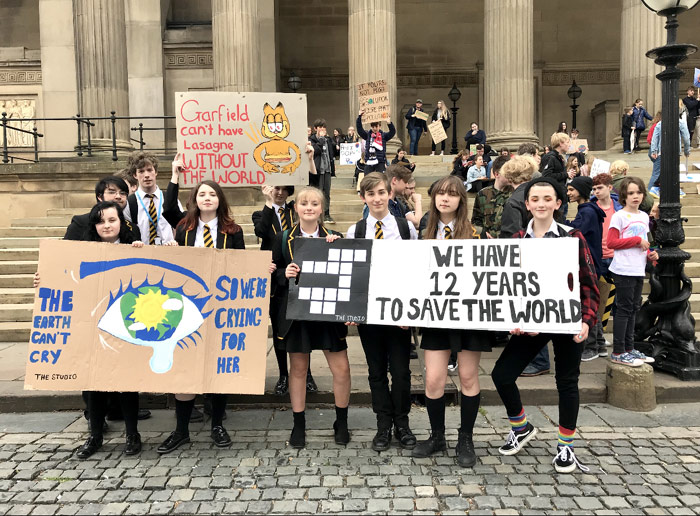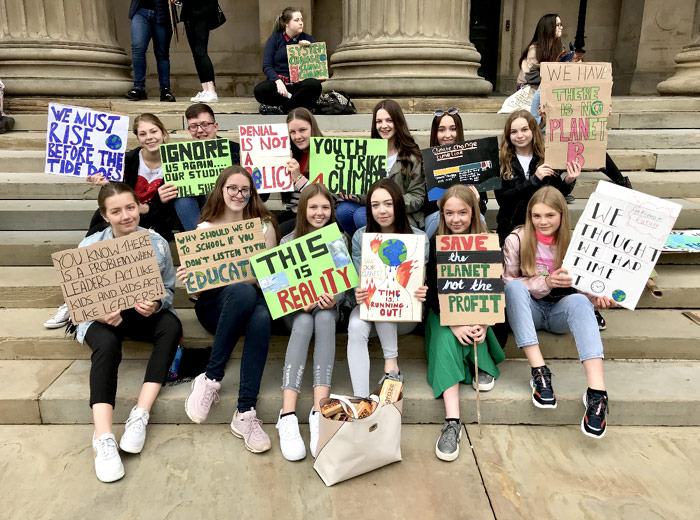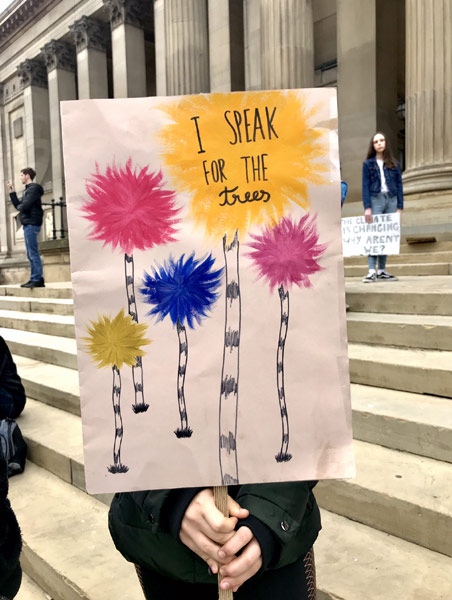Katy Brown speaks to Patrick Auth, YouthStrike4Climate Liverpool
(Photos of YouthStrikers at St Georges Hall by Tracey Dunn)
KB: How did you become involved in the YouthStrike4Climate?
PA: A friend told me about the strikes about a year ago; I came along and loved it. I felt safe and surrounded by people with the same opinions as me. In daily life talking about climate change can get some strange looks but here it’s a community of like-minded people.
KB: Has it been hard taking time out of school?
PA: Most strikers aren’t actually in school, I’m on a gap year so can help out more, I’m 18 so I can steward and close roads which is important for safety.
KB: Why do you think these strikes are important?
PA: It’s important to come together to make our voice heard, to have one loud voice in solidarity demanding change and action, for example us moving to renewable energy. Eco-anxiety is a real concern and people lose sleep over worries about climate change, but people sleep better if they come to these events and let out how they’re feeling. We walk past businesses and get people listening who wouldn’t usually, so we can get more people on board to save the planet.
KB: How do you organise?
PA: It’s youth led. There aren’t many adults, it’s mostly people in school or university who help – we sort out routes, where to go; health and safety is our top priority.
KB: What would you say to people who say it’s irresponsible missing out on your education in this way?
PA: I know that education is a chance to learn for the future, to build to be more sustainable but if we don’t take action there’ll be no future. We’re not taught climate change in school; some schools are on board; some are against the strikes. What’s more important than saving the planet? There are so many job opportunities in the future we’re trying to create – conservation, renewable energy, sustainable agriculture. And doing this is educational – we share ideas, find out statistics, and we get speakers to talk at the strikes, who share their knowledge.
KB: What do you hope the strikes will achieve?
PA: Strikes are more about raising awareness; there’s only so much we can do. Leaders have lots of power and money. We need to demand the same things. There is definitely a lot of hope and these strikes are having an impact. Before Greta [Thunberg] people weren’t talking about climate change and disrupting daily life with radical but peaceful strikes – this has to be documented. It’s important and there has been some change already – the UK government has announced a climate crisis, airport expansions have been scrapped – Bristol and Heathrow – so there are some positive things. There’s a lot of hope.
KB: Liverpool City Council has declared a climate emergency – what demands would you make of them to turn these words into action?
PA: Liverpool City Council need to be moving away from fossil fuels to renewable energy, to power electricity demands through wind and hydro-electric. They need to reduce public transport costs, as trains are the most carbon friendly form of transport but are expensive. Also, plastic is an issue; we need to be better with recycling, and that should be addressed locally. In Austria you can be fined for not recycling; in Germany they have a system where you can return plastic bottles and can get money which offers a big incentive. The 5p bag charge worked. We need more recyclable materials and to be better at dealing with waste.
KB: What would you ask of adults reading this?
PA: We are non-political, but people should be thinking about voting, and about who to vote for and what they are doing for the climate. We can probably all agree that the Tories aren’t taking a lead, with a zero carbon by 2050 commitment compared to 2030 from the other main parties. 2050 is far too late. I’d like to ask you to think about what they are doing to ensure that those in charge are taking the necessary steps to tackle climate change whether that be campaigning, going to meetings, talking to people – anything you can do. Going vegetarian or vegan, or if you can’t manage that then at least reducing meat consumption to 1-2 times per week. It doesn’t have to be black and white. Buy a re-usable cup and take it wherever you go; think about buying things you can use again and again rather than just single use when you go shopping. Take re-usable bags and try to buy food that’s not packaged; buy loose and supermarkets will respond to demand.
KB: Since we first spoke the Coronavirus has hit, affecting many aspects of our lives – has YouthStrike4Climate Liverpool been able to keep campaigning?
PA: Yes, we did a digital climate strike on Friday 3rd April where we asked people to send us pictures of themselves holding signs in their homes for us to share and add the hashtag #climatestrikeonline. We’ve also been sharing weekly stories of different activists in the UK on our Instagram ‘youthclimatestrike_lpool’, as well as sharing science articles, petitions and a Lockdown Reading List. We’re also undergoing important discussions with the UK Student Climate Network (UKSCN) about where we can go from here, and what we can do to keep raising awareness of this issue (excluding a physical strike) as this global issue definitely isn’t going away! We are working on some future events but we’re still in the planning stages for those.
KB: You’ve also hit the airwaves recently – do you want to tell us a bit about that?
PA: Yes, over the past few weeks myself and another YouthStrike member (Riegan) spoke on the radio a few times – one time on BBC Radio Merseyside. We talked about how important it is for MPs to fight for a green transition from Covid. It’s vital now more than ever not just to “go back to normal”. If the Green New Deal and its proposals aren’t acted upon, we will have hundreds of global crises coming up: more pandemics, heatwaves, floods, droughts, famines, climate change refugees etc. The Met office has predicted that it is highly likely we will be seeing record-breaking temperatures in 2020-2024. We can’t forget about the Californian, Brazilian and Australian bush-fires of last year. The Australian ones alone released 900million tons of CO2 into the atmosphere, which is double the country’s annual fossil fuel emissions. Ignorance is bliss but if the Western world doesn’t make going green a priority soon, coronavirus will look like a breeze at the end of the century.
Thanks Patrick – wise words. Keep up the good work!
